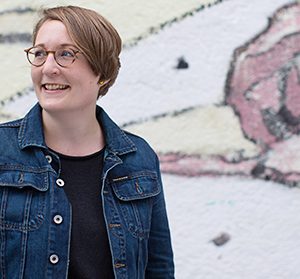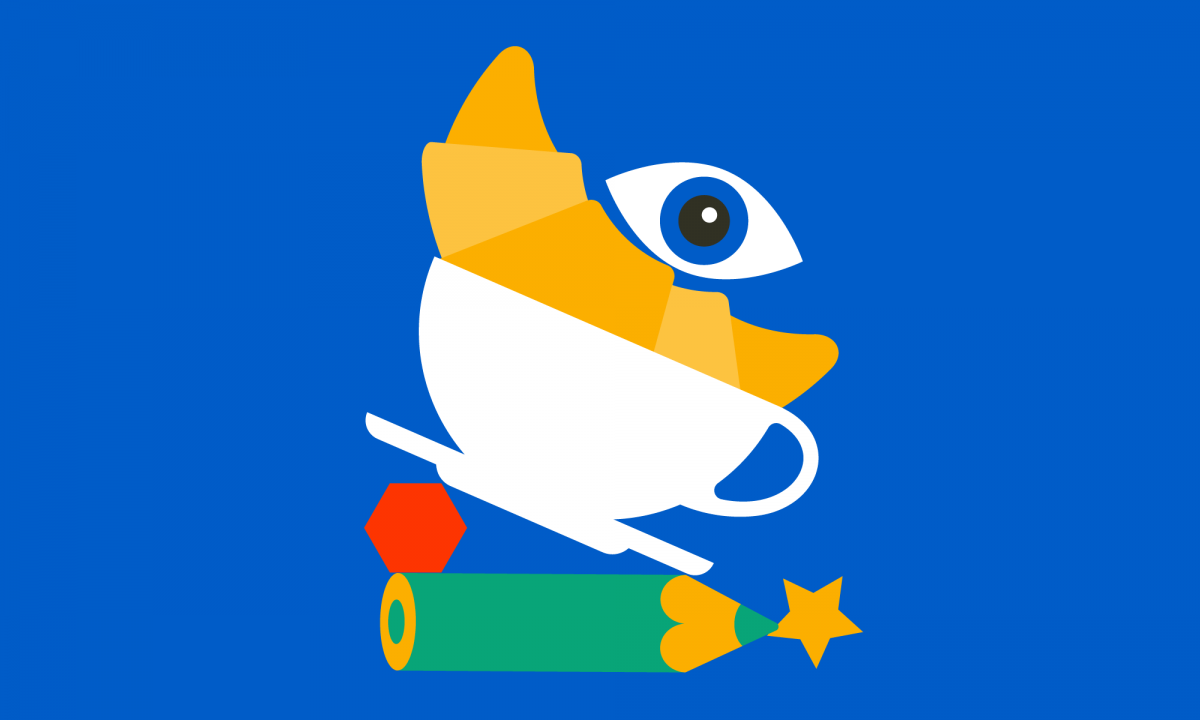What can be said about crowdfunding in Munich? A lot, if you ask us. What eight arguments speak in favor of crowdfunding a startup? Here’s an overview with tips, network info and funding options in Munich.
Crowdfunding, just like its name says, is a special kind of financing from a group of people. So what makes it interesting for startups? After all, a rapidly scaling business model often requires a high level of financing. For startups in particular — but also for established companies — crowdfunding is not only a form of financing, but can also be much more. It can serve as a market test on one hand and a marketing instrument on the other. With a crowdfunding campaign, a business idea or product can be directly tested by and advertised to the target group.
Here’s an overview of eight arguments that speak in favor of crowdfunding in Munich.
The stress test
Argument 1: Project starters need to thoroughly think through all of the key aspects of the product and market. That’s why crowdfunding, in addition to being a market test for the product, is also considered a stress test for the founding team, says Alexander Schmidbauer. At the City of Munich’s Department of Labor and Economic Development, he introduced the department’s own funding instrument to financially support young entrepreneurs with their campaigns. Schmidbauer thinks:
“You can think of crowdfunding as the democratization of startup financing. But it’s also more: Concentrating all of the topics relevant to founding a company in a campaign requires excellent and professional preparation as well as entrepreneurial qualities. That means campaign starters have to tackle a steep learning curve.”
Successful crowdfunding as an argument for additional financing
Argument 2: More money. For founders who are just getting started, a successful crowdfunding campaign can also be a good argument for subsequent financing, explained Alexander Schmidbauer:
“After a successful campaign, founders have a good argument for subsequent financing in their pocket and can be more confident in how they present themselves.”
Communication and dialog
Argument 3 and 4: A communication strategy — and real dialog. Mona Knorr, the crowdfunding specialist who brought the monthly Crowdfunding Meetup into being two years ago, looks at it this way:

“Crowdfunding forces project initiators to draft and communicate their idea or endeavor in a precise and understandable way for their target group. At the same time, they also have to present their startup to the public and engage in dialog with future customers.”
In concrete terms, that means: A project starter has to clearly understand their idea and unique selling proposition. They need to know their target group and where to reach them. After all, supporters don’t just come out of nowhere. Unfortunately, there’s still the widespread misconception that it’s enough to put a project on a platform with a good video, explained Mona Knorr. That’s why she recommends proceeding as follows:
- Make your ‘family and friends’ your project disseminators,
- research networks,
- create mailing lists,
- build up a community,
- get into contact with the media,
- get involved in groups that are relevant for your project,
- consider ads and paid marketing.
- And start doing it all as early on as possible!
Founders really benefit from a clear approach, because it prepares them to enter the market. Moreover, open communication with future customers also means a startup learns a lot about their customers’ “pains.” That helps make future communication even more target-oriented while also improving the product for customers. Even if it means for the next batch of products.
That’s something expert Mona Knorr also confirmed. During the monthly meetups, she talks with lots of projects and has noticed that all campaign starters really learn something or come away with important feedback. And that is completely regardless of whether the campaign was successfully financed or not. Some project starters only realize after a campaign that they need to take a different path. Mona Knorr thinks:
“With crowdfunding, you can just fail without any major risk.”
Market test and customer loyalty
Arguments 5 and 6: Digital market testing and marketing as well as long-term customer loyalty. Florian Kemmelmeyer finds the topic so fascinating that he wrote his Master’s thesis about “Crowdfunding as a digital marketing strategy” for startups. His key findings? The response from many expert interviews was clear, said Florian Kemmelmeyer:
“Especially for startups, crowdfunding can be used specifically as an instrument for digital marketing. Affordable market validation and increased recognition have a particularly positive effect.”
On one hand, a campaign shows a young company how their target group thinks and what is accepted well by the market. On the other hand, a campaign is a good way for young companies in particular to achieve more recognition and build trust with their target group as a brand that was unknown up to that point. In particular those who continue to communicate with the crowd after sending out their rewards and share information about progress and challenges achieve even greater customer loyalty to their company. Kemmelmeyer draws further conclusions: Although a crowdfunding campaign does cost an amount in terms of finances and staff, if a startup plans well and engages in dialog with their target group, the company will benefit from its crowdfunding campaign over the long-term.

And for companies and industries without any ties to crowdfunding yet, it can be an exciting instrument, too. That is also the case for skilled crafts and trades. Many Munich residents are familiar with the successful crowdfunding campaigns of the brewery Giesinger Bräu, which have had a particularly long-term effect on customer loyalty. An additional campaign for the brewery is currently being planned. Georg Räß, Commissioner for Innovation and Technology of the Chamber of Trade and Crafts for Munich and Upper Bavaria, thinks that crowdfunding and trade crafts go together very well, especially in the craft-based food industry.
“Jäger und Sammler, Giesinger Bräu and Chocolate³ have impressively proved it. But from my point of view, it’s also a good match for other trade industries where craftspeople have an exciting story to tell and speak directly to the customer with their product or service, for example in the field of furniture or bicycles.”
Networks: Where can you find help?
Argument 7: The city has a very open crowdfunding network. First off, current and former project starters are happy to share information and like to give recommendations. Secondly, different communication platforms offer assistance for crowdfunders in Munich that is often free of charge.
The first one to name is the free networking breakfast: The “Wake up, Crowd,” a free breakfast meetup about crowdfunding, is held every month at Cafe Blá. Every participant can introduce themselves briefly, and most often a keynote speech from a contributor follows before it’s time for some good networking. Crowdfunding newbies meet up with experienced crowdfunders who have already successfully completed several campaigns. It’s a very profitable exchange of information among equals. Meetup co-founder Mona Knorr thinks:
“No matter how many tutorials and handbooks you find online — talking with other campaigns is still the most valuable thing!”

There’s also a regular advisory and crowdfunding breakfast at ‘KuK Café.’ Moreover, the Competence Team for Cultural and Creative Industries also regularly hosts free workshops about concrete campaign planing. That’s also where individual orientation sessions can be arranged with a consultant. Campaign starters can also arrange individual consultation sessions at the Munich Business Startup Office. To receive the Münchner Crowdfunding-Förderung (Munich crowdfunding grant), a consultation session is needed with one of the two institutions mentioned.
When it comes to exchanging know-how, a well-known highlight is Crowd Dialog (which will unfortunately not be held in Munich in 2019). And with Oekom Crowd‚ a publishing house with its own platform for book projects is also located in the city.
That means there’s a variety of places for crowdfunders to contact in Munich. Mona Knorr is thrilled about the local scene:
“No other city in Germany has so many institutions that are involved with the topic and offer information, consultation and support specifically for crowdfunding. I personally really appreciate how willing everyone is to pass on their knowledge and experience, share information and help others with tips and contacts.”
Financial support for Munich crowdfunders
Argument 8: Munich offers a financial grant for crowdfunding projects. In terms of support for crowdfunding, Munich really is in a good position. Especially because the city offers a crowdfunding support program that is unique in Germany. The capital city of Bavaria financially supports the preparation and implementation of a campaign with a grant of up to 50 percent and a maximum 3,000 euros.
The grant is awarded to cover the costs for photos or videos, texts, editing, translations, graphic services such as infographics, storytelling, communication, PR and social media. A further advantage for the promoted projects: Those who can prove they’ve conducted a successful campaign have a better shot at successfully receiving funding from the bank Stadtsparkasse München’s program “Munich Crowd.”
Last but not least, here’s some information for campaign starters who are currently unemployed and starting a company: One-on-one coaching sessions can be supported on request, for example by the employment agency.
If you would like to keep on top of crowdfunding offers and events in Munich, an overview is available on this website that was created for that very reason.
Top tips for crowdfunders
And in closing, here is a concentrated selection of tips and tricks. Alexander Schmidbauer’s ultimate tip:
“Professional and long-term preparation as well as networking, networking, networking — at the Crowdfunding Meetup.”
Georg Räß feels the same:
“Network, network, network!!!”
And Mona Knorr’s top tip is:
“Think long and hard about how you can reach people with your campaign.”
That was indeed one of the biggest challenges faced by project starter Maria Olinger from Raumio – namely raising enough awareness of the campaign. She explained:
“That’s why the recommendation I give every founder is to actively use the time during the campaign, plan activities ahead of time, activate your entire network and be tenacious — it’s worth giving your all and is not a time to hold back! Only those who persevere with be successful!”
For Carolin Kunert from Knister Grill, the campaign was the “ultimate” (and successful) market test. Her tip for other project starters:
“Plan everything for the long-term in advance! Look for support and don’t conduct a campaign on your own.”
For Benedikt Daschner from Chocolate³, meticulous planning ahead of time was also important. He further recommends:
“Take advantage of all of the consulting you can get! If you hear something often enough, there’s usually a reason (even if you think you know better). And in the end, do what works best for you!”
So is crowdfunding worth it in Munich?
Actually, crowdfunding is definitely not the right solution for every startup or every product. The amount of effort needed for a campaign should not be underestimated. But if you want to give it a try, Munich is an ideal place to do so. If you want to find out if it could be an exciting instrument for you, there’s a multitude of communication platforms. And should you decide to undertake a campaign, you should take advantage of all of its benefits: After all, crowdfunding is not only a stress test for founders, but can also be used as a market test and marketing tool. Munich’s crowdfunding grant is a non-refundable grant and in there’s even potential subsequent financing from ‘Munich Crowd.’
To make sure a campaign is a success, good preparation as well as transparent communication and dialog and a network are essential. Good support is offered in Munich for just that: Particularly helpful features are the monthly Crowdfunding Meetup as well as crowdfunding consulting from the Munich Business Startup Office or theCompetence Team for Cultural and Creative Industries.



